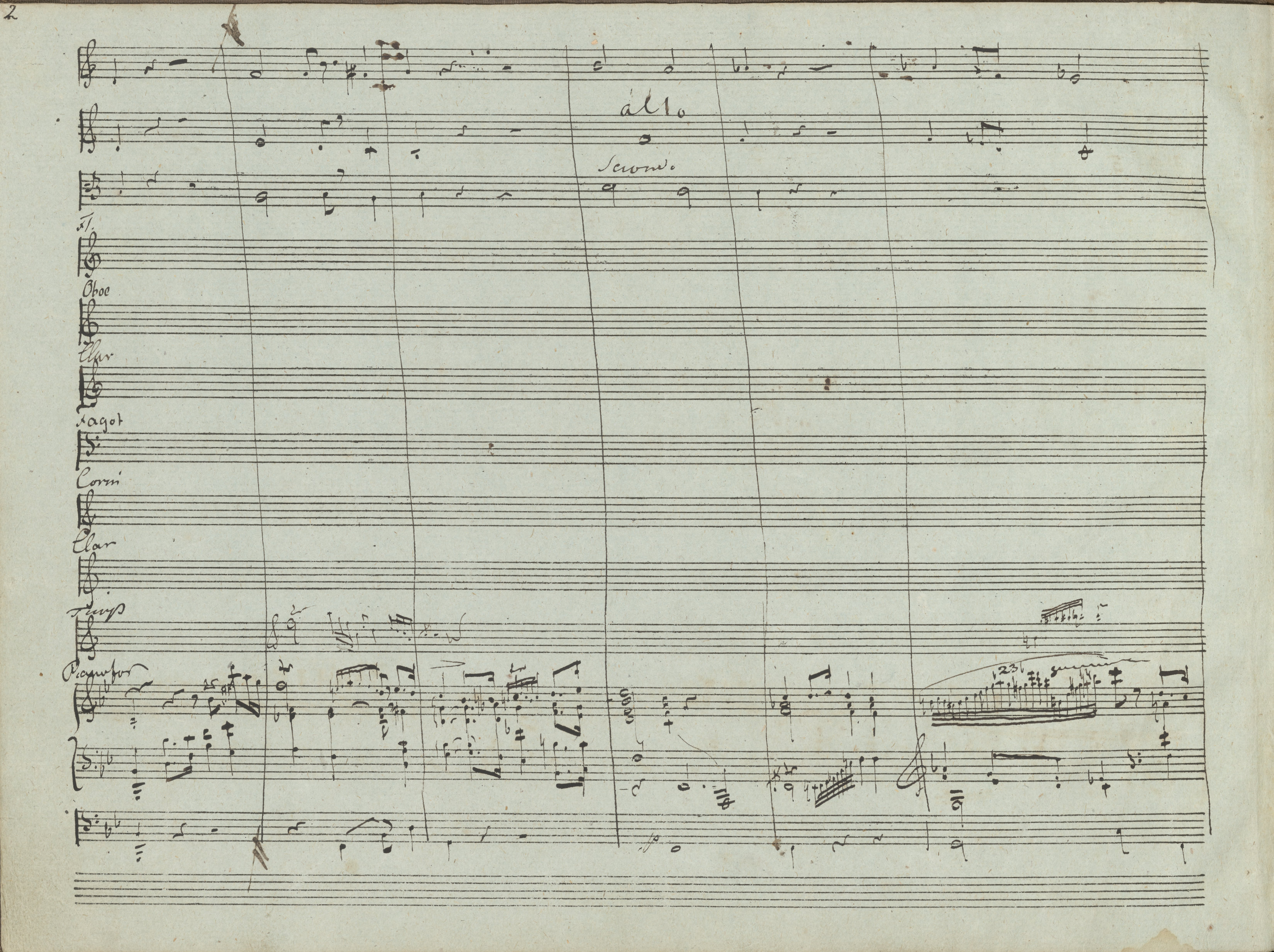



The abbreviation leggier., used here by Chopin, can be seen a few more times in the Variations, which is in b. 63, 94, 261 and 308. Apparently, the composer considered this form to be unequivocal and rational in order to simplify the notation. However, none of the two indications that come to mind first and for which the abbreviation could stand – leggiero and leggierissimo – meets the below criteria:
- such an abbreviation of leggiero is pointless, since the mark replacing the removed letter (in Chopin's time it was a colon, now it is a full stop) takes up the same space as the omitted 'o';
- leggierissimo is generally abbreviated as leggieriss., of which Chopin was aware, since he used it twice (b. 55 and 367); he would also use correct abbreviations of other superlative adjectives – legatiss. (b. 19, 158, 191, 266 and 367) or prestiss. (by the end of b. 63).
In addition to the most frequently used adjective forms (such as largo, allegro or, e.g. marcato), young Chopin was also fond of adverbs, e.g. accuratamente (at the beginning of Var. II, b. 135) or graziosamente (at the beginning of III mov. of the Concerto in F minor, Op. 21). Above all, he reached a few times for leggieramente, e.g. in the Concerto in F minor, III mov., b. 81 and 317 or in the Rondo in E , Op. 16, b. 368. It is this indication, synonymous with leggiero, that seems to be the word that was abbreviated to leggier. – the abbreviation is clearly shorter than its full form; to Chopin, it could have been unequivocal, since he would use a different abbreviation for leggierissimo. According to us, this would explain the absence of leggiero in the Variations, one of the primary indications across Chopin's entire oeuvre.
, Op. 16, b. 368. It is this indication, synonymous with leggiero, that seems to be the word that was abbreviated to leggier. – the abbreviation is clearly shorter than its full form; to Chopin, it could have been unequivocal, since he would use a different abbreviation for leggierissimo. According to us, this would explain the absence of leggiero in the Variations, one of the primary indications across Chopin's entire oeuvre.
Compare the passage in the sources »
category imprint: Interpretations within context; Differences between sources
issues: EE revisions
notation: Verbal indications

